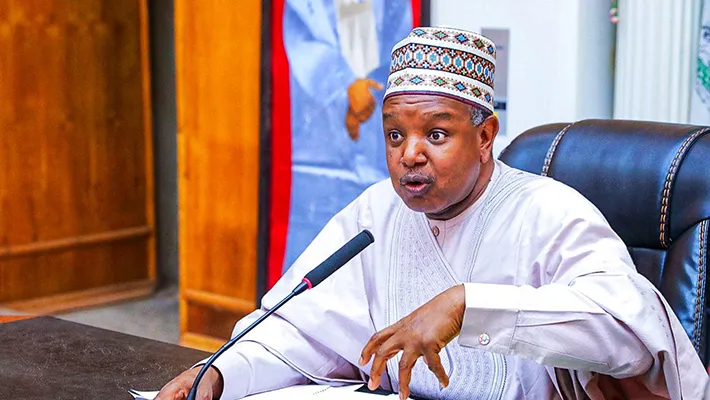Nigeria and the United Kingdom (UK) have deepened their partnership by signing agreements worth N589 billion (£272.6 million) to address critical issues such as health, climate resilience, governance, and economic development.
The agreements were formalized in Abuja by Nigeria’s Minister of Budget and Economic Planning, Senator Abubakar Bagudu, and the UK’s Charge d’Affaires, Ms. Cynthia Rowe.
At the signing ceremony, Senator Bagudu emphasized that the collaboration marks a significant step toward addressing global challenges that impact both nations.
“We face a range of shared challenges, from the global economic climate to the urgent need for sustainable health and climate solutions,” he said. He highlighted the recent economic reforms under President Bola Tinubu’s administration, which, though challenging, are essential for long-term economic stability and growth.
Ms. Cynthia Rowe expressed the UK’s unwavering commitment to Nigeria’s development and resilience. She noted that these agreements build upon the strong foundation of cooperation between the two nations, especially in the wake of natural disasters like flooding, which have exposed vulnerabilities and underscored the need for robust governance and sustainable development.
One of the centrepiece agreements is the Human Assistance and Resilience Program (HARP), a £150 million initiative designed to provide urgent humanitarian aid to Nigeria’s conflict-affected Northeast region.
Additionally, the Nigeria Governance and Climate Change Programme (NGCP) and the Strengthening Peace and Resilience in Nigeria (SPRING) were highlighted as strategic efforts to bolster governance, promote climate adaptation, and ensure inclusive growth.
“These initiatives are more than just funding; they represent our shared vision for a resilient and prosperous Nigeria,” Rowe added.
The agreements reflect a broader commitment from the UK through the Foreign and Commonwealth Development Office (FCDO) to support Nigeria’s path to economic transformation, conflict resolution, and human development.
The programs are expected to enhance the lives of Nigeria’s most vulnerable populations, strengthen institutions, and foster inclusive economic growth.
The agreements also signify a deepening of diplomatic and economic ties between Nigeria and the UK, highlighting a strategic partnership committed to tackling complex challenges together.


